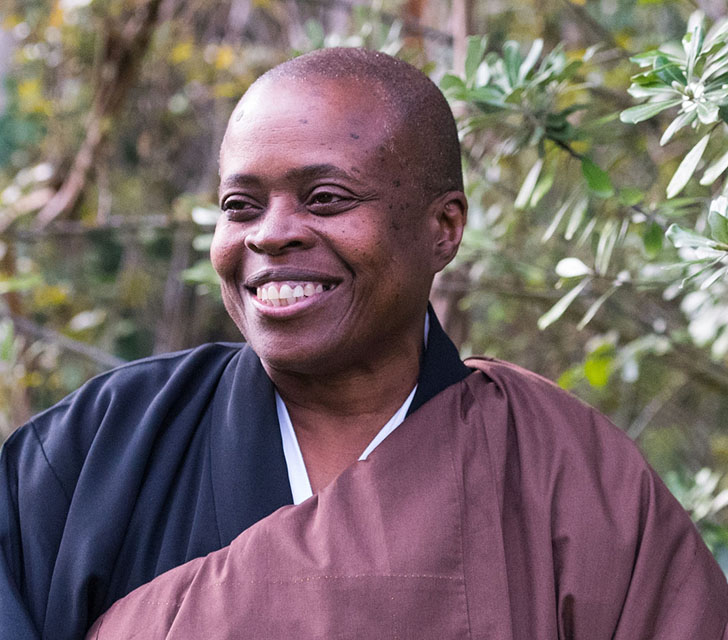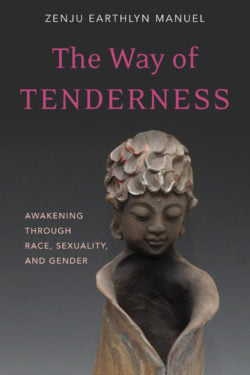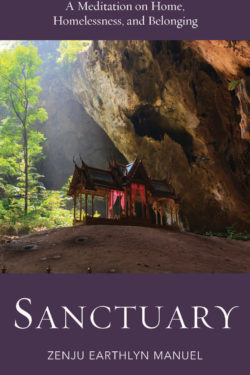Zenju Earthlyn Manuel

Rev. Zenju Earthlyn Manuel, PhD, is an author, visual artist, drummer, and Zen Buddhist priest based in East Oakland, CA. She was raised with two sisters in Los Angeles after her parents moved there from Creole Louisiana. She is the author of Tell Me Something About Buddhism and contributing author to many books, including Dharma, Color and Culture: New Voices in Western Buddhism and The Hidden Lamp: Stories from Twenty-Five Centuries of Awakened Women.
Books, Courses & Podcasts
The Way of Tenderness
In The Way of Tenderness, Zen priest Zenju Earthlyn Manuel brings Buddhist philosophies of emptiness and appearance to bear on race, sexuality, and gender, using wisdom forged through personal experience and practice to rethink problems of identity and privilege. Manuel brings her own experiences as a lesbian black woman into conversation with Buddhism to square our ultimately empty nature with superficial perspectives of everyday life. Her hard-won insights reveal that dry wisdom alone is not sufficient to heal the wounds of the marginalized; an effective practice must embrace the tenderness found where conventional reality and emptiness intersect. Only warmth and compassion can cure hatred and heal the damage it wreaks within us. This is a book that will teach us all.
Sanctuary
Sanctuary: A Meditation on Home, Homelessness, and Belonging examines the interface between inner and outer sanctuary, and the ways they affect one another.
“Sanctuary” is the home we can return to when our lives are under threat, where we can face what’s difficult to love, and have a place where we can truly say, “I am home”—and spiritual teachers often emphasize sanctuary’s inner dimensions, that “our true home” is within. “Homelessness,” in turn, can be viewed as a forced experience or one in which there is a spiritual void in being or feeling home.
Drawing from her life as a Zen Buddhist priest whose ancestors labored as slaves in Louisiana, Zenju Earthlyn Manuel explores the tension between oppression—based on race, religion, ability, class, orientation, gender, and other “ghosts of slavery”—and finding home within our own hearts. Through intimate personal stories and deep reflection, Manuel helps us see the moment when the unacknowledged surfaces as “the time we have been practicing for,” the epiphany when we can investigate the true source what has been troubling us. This insightful book about home and homelessness, sanctuary and refuge offers inspiration, encouragement, and a clear-eyed view of cultivating a spiritual path in challenging times.


